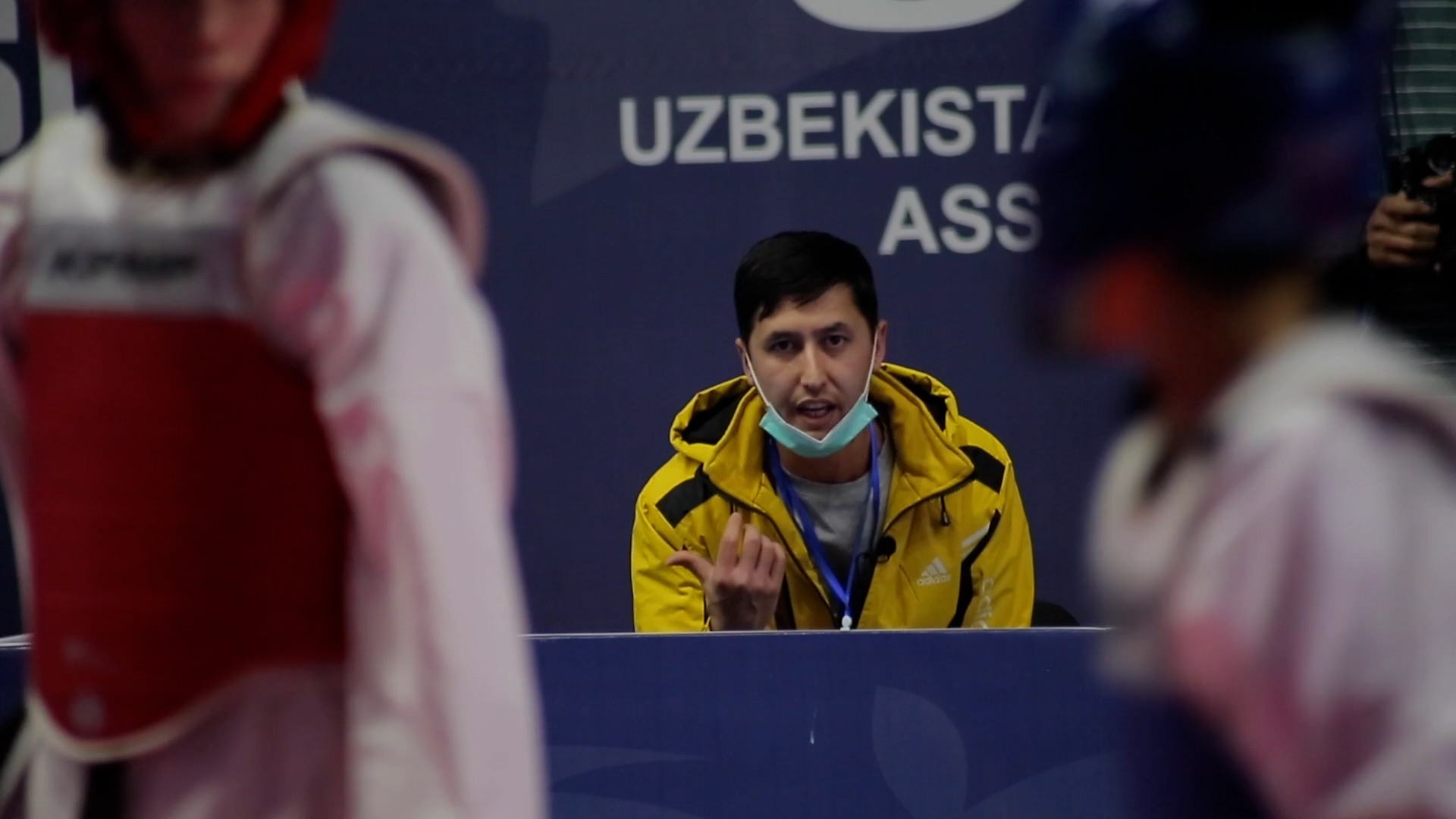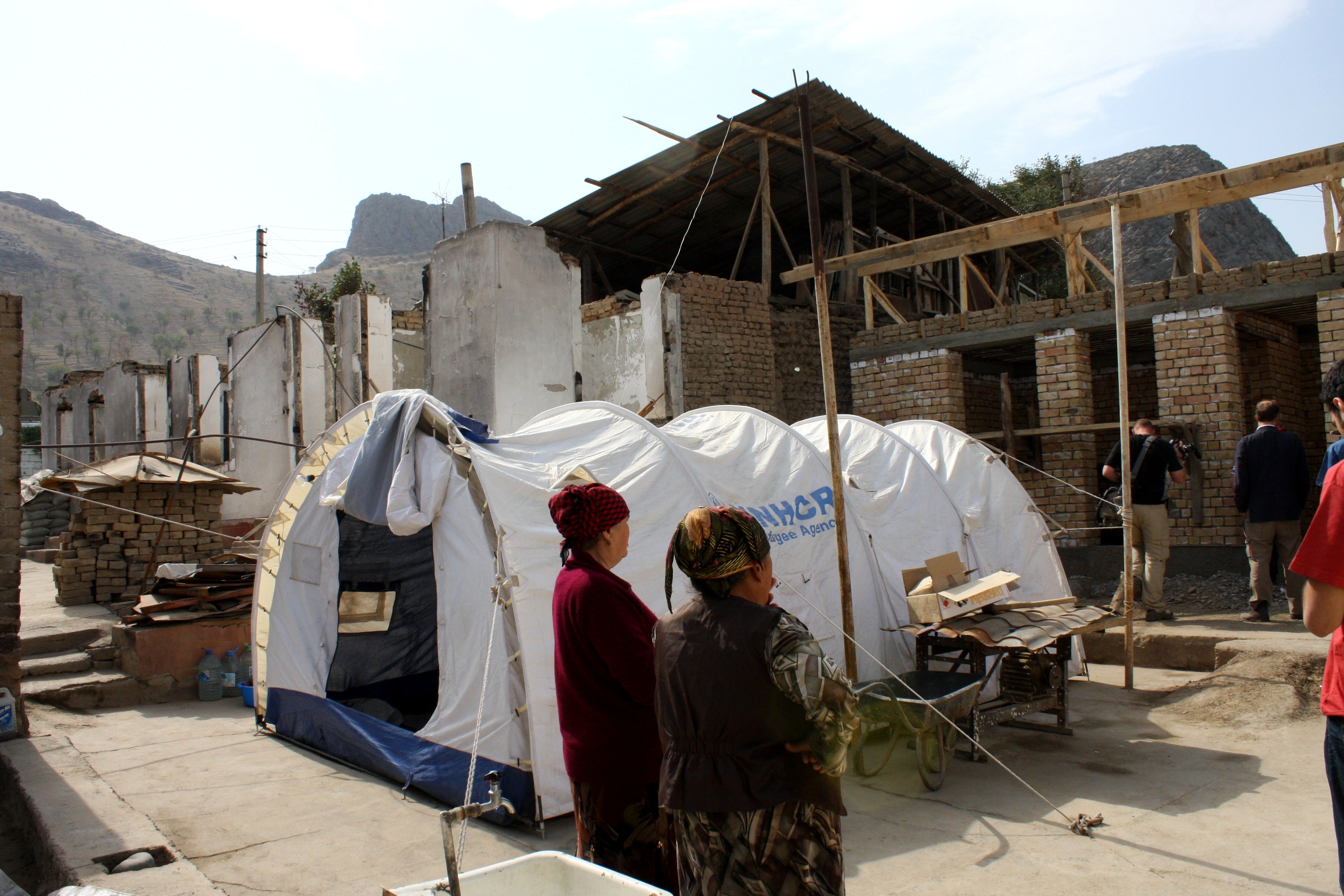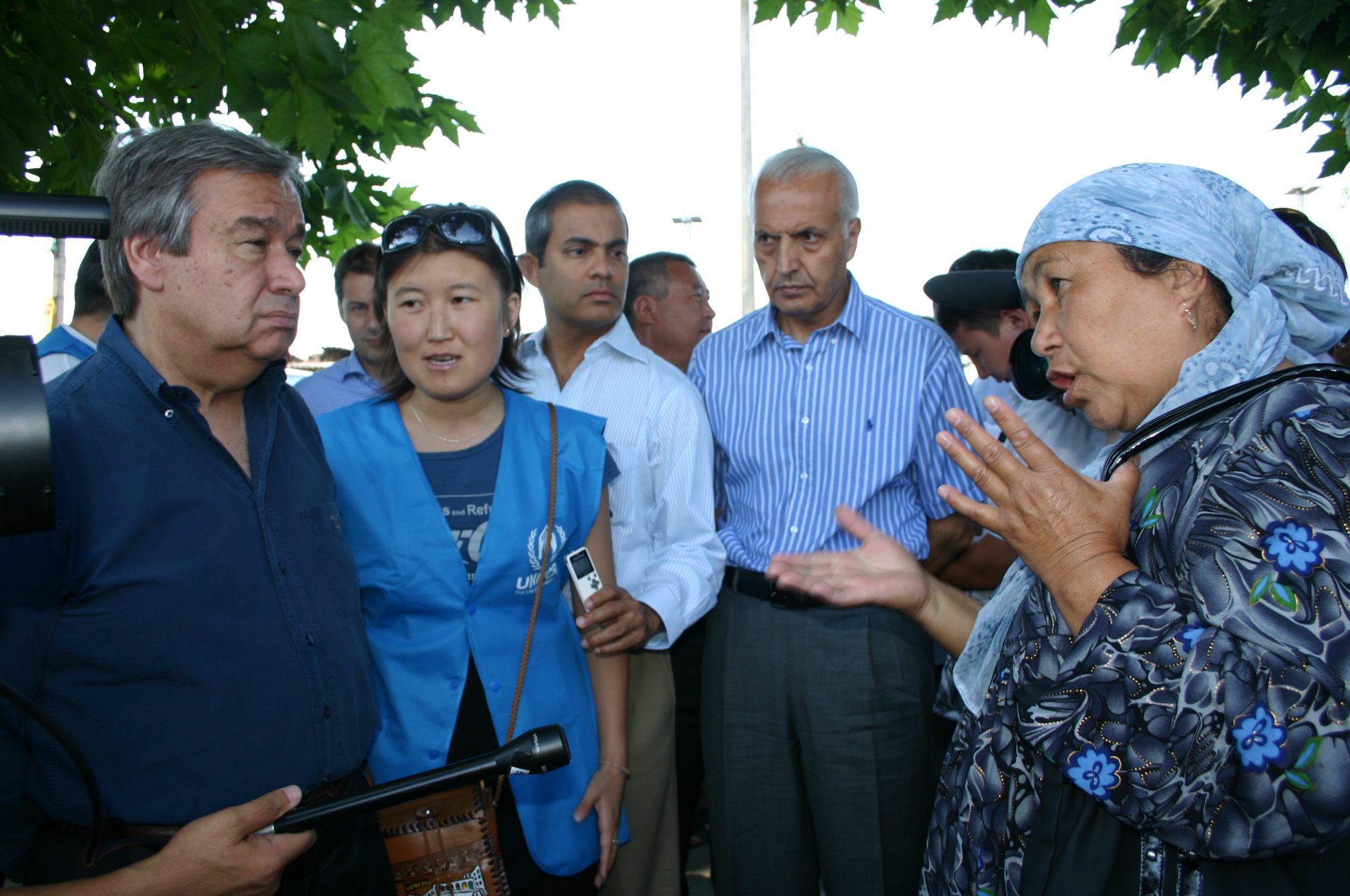Uzbek refugees recount harrowing tales three months after Andijan violence
Uzbek refugees recount harrowing tales three months after Andijan violence
TIMISOARA, Romania, August 15 (UNHCR) - Ongoing interviews with Uzbek refugees awaiting resettlement from Romania have revealed harrowing tales of violence, trauma and loss in eastern Uzbekistan's Andijan town, from where they fled three months ago.
Fatima* is sitting in the UNHCR reception centre in Timisoara, eastern Romania. She is one of 439 Uzbek refugees who arrived in Kyrgyzstan in the wake of the violent events in Andijan on May 12 and 13, and spent 10 weeks in fear of deportation before being transferred to Romania in late July.
At the reception centre, the 46-year-old has found a place where she feels less scared. She still has vivid memories of May 13, the day she decided to go to Babur Square in Andijan - a day that ended horrifically for her.
"My young son was killed in Babur Square," she said. "The bullet went through his ear, they said. I did not see it happen. I was also on the square with my other son and saw a young boy being shot in front of me. Now when I think about my dead son, I think about the young one I saw."
She added, "If I could turn back time, I would never have gone to the square. But we all just went with the best intentions." She said she had gone there to express her grievances about various detained people as well as the difficulties of daily life in Uzbekistan. "Like most of us, I just wanted to see and who knows, maybe speak to the President."
Around 5 p.m., she recalled, shooting suddenly started from nowhere. Before she knew it, Fatima and her son were running like crazy to the only street that was not blocked by buses and personnel carriers. They did not stop until they arrived at the Kyrgyz border around dawn the following morning. They managed to cross into Kyrgyzstan, unlike others who were reportedly shot by Uzbek security officials.
Nargiza*, 42, was also at the scene of the violence. "On May 13 I went to the prison where my husband, a businessman, had been imprisoned for six years. The reason? I don't know."
She explained, "I heard in the prison that the President would be coming, so I went to the square. When I heard a helicopter, I got excited: a chance to voice our grievances. We heard speakers, and then suddenly shooting started around me in the streets. I saw one neighbour in front of me. His face was all bloody. Speakers urged us to leave but I was cornered."
Luckily, she managed to escape and didn't stop running until she arrived in Kyrgyzstan at dawn. "Later I heard from others that my house had been sealed: the security had come and blocked it. And two of my daughters are missing. I would not dare to go home," said Nargiza.
Fatima feels the same way: "I have fear and for the sake of my surviving son, I want to stay out of Uzbekistan."
Both women are now waiting with some of their family members in Romania, talking with representatives from various resettlement countries - more than 10, including the United States, Australia and Canada. Like other Uzbek refugees in their group, Fatima and Nargiza are hoping to find a place where they can finally feel safe again.
Others are not so lucky. In June, four Uzbeks of concern to UNHCR were unlawfully deported from Kyrgyzstan to Uzbekistan. Since then, neither UNHCR nor any other organisation or individual has had access to them. Last week, the Uzbek authorities told UNHCR in a letter that the four were "self-reported criminals" who had returned voluntarily and were now being held in a detention facility in Tashkent. UNHCR, however, has been unable to visit or talk to them, and remains extremely concerned about their well-being.
Another 15 Uzbeks who fled the Andijan events are still in detention in Osh, western Kyrgyzstan. The Kyrgyz authorities have emphasized on several occasions that the group will not be deported to Uzbekistan. Eleven of the 15 have already been accepted for resettlement by the Netherlands, Finland and Sweden, and efforts continue to find a similar solution for the other four. All 15 are of concern to UNHCR as they have expressed fear of persecution if returned to Uzbekistan.
* Not their real names







